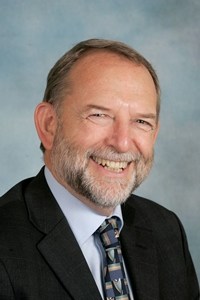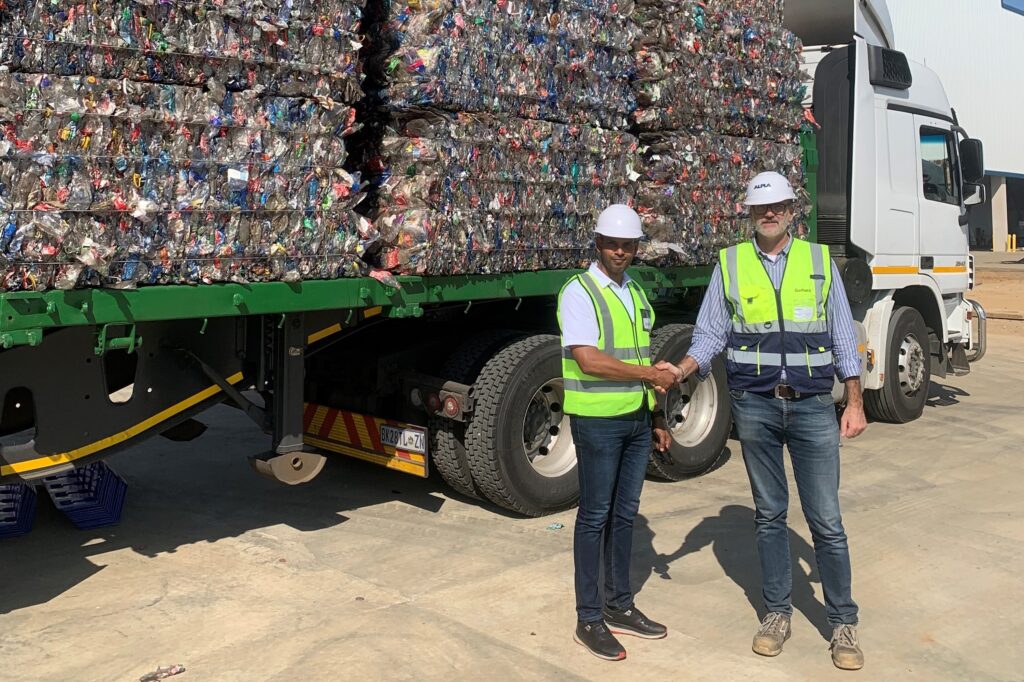Local government waste policy is a contentious issue and few people know this more than Phillip Ward.
After stepping down from his role as local government director for the Waste & Resources Action Programme, Mr Ward was afforded a rare opportunity to look back on the increasingly politicised issue of householders bins.

It has been challenging but if at the outset of the job someone had told me when I applied for this job that my face would end up on the front page of the Daily Sport, I wouldnt have believed them, he says with a smile.
These issues have been debated on the front pages of national newspapers, across council boardrooms and even on the floor of the Commons. This would appear somewhat daunting to many but Mr Ward, who used to work in the civil service, says he is well versed in such debates.
I was there when they saw through the legislation on the Poll Tax, so I am not exactly insulated from conflict and how to deal with it. So in one sense, I was able to draw on my experience to make it through.
Mr Ward has said that some issues have been hard to take – nobody likes to be pilloried in the Daily Mail but he says it is a double-edged sword, in that it reflects the regard in which WRAP is held.
While he is glad that WRAP has become an authority on waste, he is keen to stress that it was only ever conceived as an organisation of expertise and advice, and shows concern at the use of their guidance as gospel.
He says: We didnt set out to create a debate. It is a common misconception that WRAP somehow has some policy formation and we dont.
It would be quite wrong for us to be responsible for making policy. We suffer a bit because when councils are asked why they are doing something they say it is because WRAP told them to, which isnt the same as us producing evidence that indicates something.
Experience
During his time in the civil service, Mr Ward moved around a number of departments and brushed elbows with some of the late 20th century’s leading political figures.
And, he was even on hand to witness President George Bush Senior put pen-to-paper on the United Nations Framework Convention on Climate Change at the Rio Earth Summit in 1992.
Mr Ward recalls an immense sense of positivity around the event: I watched him sign it and we all thought, well thats that, job done but it certainly wasnt.
Mr Ward also has first-hand experience of developing policy and while working at the Department of Environment, Transport and the Regions he was heavily involved in the creation and publication of the Waste Strategy 2000.
The DETR was split and amalgamated with the Ministry of Agriculture, Fisheries and Food to become Defra. And, it was around this time he became involved in the foundation of the initial incarnation of WRAP.
While still a civil servant, Mr Ward worked with Vic Cocker and George Fleming, then president of the Institution of Civil Engineers, to form the Waste & Resources Action Programme.
And, when the time came to move away from the civil service, he was drawn to work with WRAP on a more permanent basis. He saw it as an opportunity to specialise rather than have the broad knowledge base required when working in a government office.
The problem with the civil service is it is filled with generalists. People who move from place to place, so in that sense their knowledge base is quite restricted as they are still learning and they are not particularly committed because they could be moved again in a years time.
He says this was unlike what they intended to achieve with WRAP, where they wanted people to be committed to their post and learn on the job. There is a real sense of potential and a shared interest to make things happen, he says.
Joining officially on January 1 2004, Mr Ward had to develop a modest team. I had four people working for me and, honestly, they spent most of their time writing to the public about how we could use old yoghurt pots for seedlings. It didnt really match the ambition of WRAP.
Instead, he sought to draw together those committed to developing guidance and advice, as well as building their own expertise, on the still burgeoning waste and recycling market. This touches again on that perennial issue of waste collections.
Our role with regards to collections has always been to try and help people to understand what works best in their communities and the thing about generating evidence is often it forces people into facing up to their prejudices, he says.
Performance
However, Mr Ward is keen for WRAP not just to be seen as a referee in one debate and points to the work that the organisation has done on other topics such as a packaging and food waste, as well as the grocery sector voluntary agreement, the Courtauld Commitment.
He says, with regards to the Courtauld Commitment, that it was an achievement just to get those retailers round the table and there was a constant sense of realism involved in these discussions.
We went for what we reasonably could get, he says. And, the outcomes have spoken for themselves, with the results of the first phase of the agreement, which ran from 2008 to 2010, showing that 1.2 million tonnes of food and drink waste had been diverted from landfill.
Furthermore, Mr Ward is very proud of the training offered to the industry by WRAP, something he believes is fundamental to the sector developing further in the future. Mr Ward is particularly keen to use training events for face-to-face meetings rather than simply disseminating guidance.
Guidance is something but the world is full of guidance but the question is how do you make this live for people? he says.
Doing a course where you can actually talk to people face-to-face and the experience that provides, that is where people come really alive. You can print guidance until you are blue in the face but you cant be sure that people will read it.
Technology
Embracing shifts in the technology and engagement, Mr Ward says that WRAP is responding to new means of getting their research into the public domain.
He explains: Less and less people take a 40-page piece of guidance and people would rather have a four minute video on YouTube. It is different but it is a good way to get more of your message across. We have to recognise, though, that we cant do it all.
Stepping down from WRAP, the majority of Mr Wards responsibilities will be absorbed by Marcus Gover under the new title head of closed loop economy, while the communications elements will be undertaken by Nick Gammage, head of communications for the organisation.
The local government stalwart is now looking for 10 days in the sunshine before officially taking up retirement. Although, he pledges to remain somewhat involved in the sector.
I intend to stay around the scene but part of this retirement thing must be about having some time for myself, he says. I have been around waste topics for 10 years now and I would like to think that I have built up a bit of knowledge.










Subscribe for free